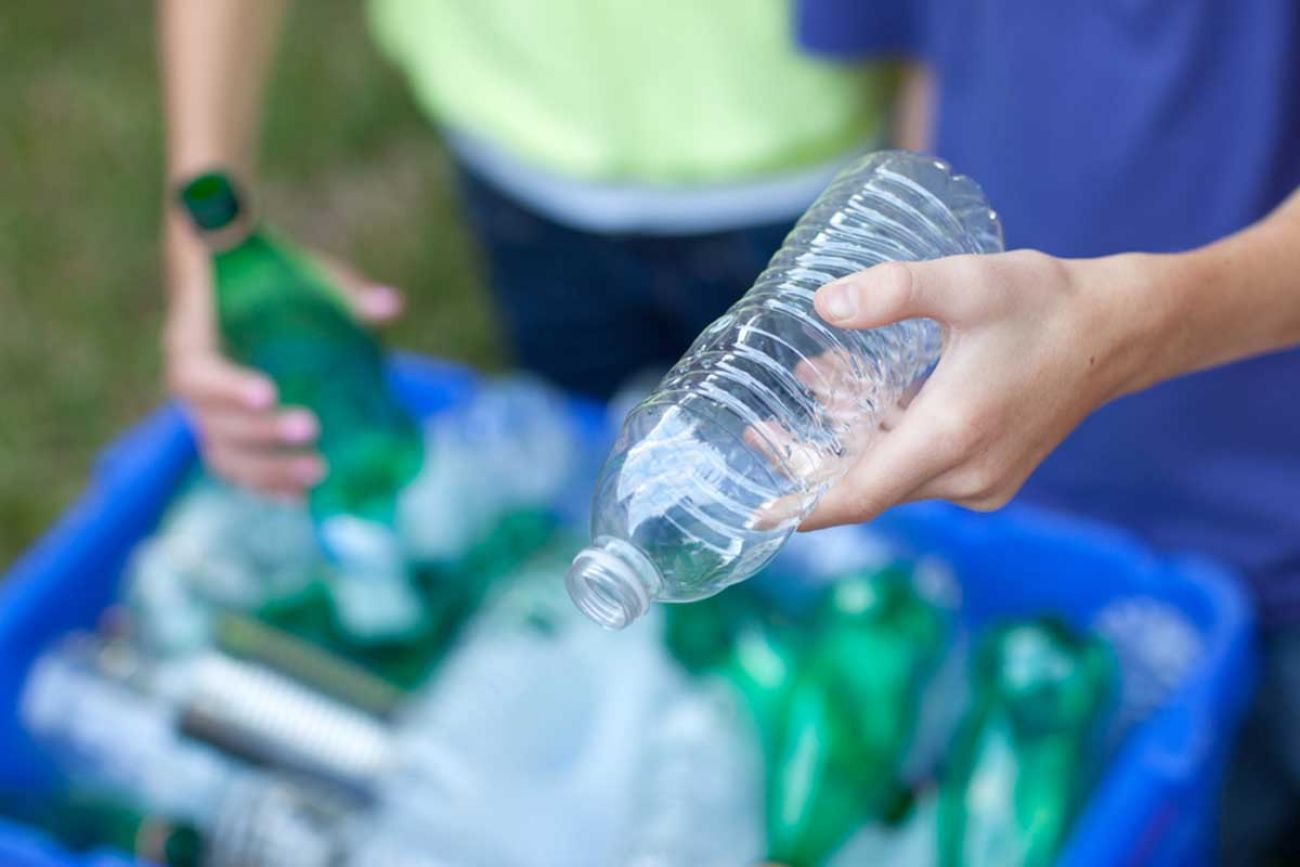Michigan offers $97 million for projects that can boost recycling in state

Michigan’s latest idea to boost the state’s abysmal recycling rate: Shark Tank for trash.
State government and business leaders on Monday announced a program to bankroll ideas that would create new markets for materials that would otherwise be destined for landfills. Think “upcycled” duffle bags made from scrap fabrics, toilet paper made from cardboard boxes and animal feed containing unused groceries.

Speaking at an announcement of the program Monday alongside Michigan business leaders and lawmakers from both parties, Michigan Department of Environment, Great Lakes & Energy Director Liesl Clark called the program a “first of its kind partnership” with bipartisan support.
Related:
- Michiganders passed up $108 million in bottle deposits amid COVID closures
- Beverage companies want cut of Michigan bottle bill windfall during COVID
- In northern Michigan, Emmet County seen as model for rural recycling
- Michigan was once a leader at recycling. Today, it’s the pits.
The initiative, dubbed NextCycle Michigan, is among a host of efforts to boost Michigan’s recycling and composting rate, which stands just above half of the national average of 32.1 percent. Whitmer and lawmakers want to raise Michigan’s recycling rate to 30 percent by 2025, and ultimately reach 45 percent.
NextCycle combines state dollars with commitments from companies like Meijer, Henry Ford Health System and toilet paper maker Great Lakes Tissue to fund ideas that could divert more recyclable material from the waste stream.
In total, a state release said, $97 million has been committed to funding recycling improvement projects so far.
In conjunction with Monday’s announcement, EGLE announced $4.9 million in new recycling grants to 45 communities, businesses and nonprofits across Michigan. That money comes from the Renew Michigan Fund, which the legislature passed in 2018 to boost funding for recycling efforts from about $2 million to $15 million per year.
Sen. Wayne Schmidt, R-Traverse City, who supported that 2018 effort, cast Tuesday’s announcement as a way to achieve Michigan’s recycling goals while supporting local businesses that rely upon recycled goods in their manufacturing processes.
NextCycle’s launch is the latest component of a longstanding effort begun under former Gov. Rick Snyder to boost Michigan’s recycling rate. Despite years of trying, the state so far has struggled to make progress.
Michigan’s current recycling rate is about 18.5 percent, said Liz Brown, director of EGLE’s Materials Management Division. That’s an improvement from 15 percent just a few years ago, but Brown said it’s still not “as high as we would like.”
And state leaders may have a tough road ahead. Recycling rates have gone down amid the COVID-19 pandemic, amid lower recycling participation among businesses whose employees have shifted to work-from-home, and increased use of single-serve takeout containers while restaurants and bars were closed.
Experts blame Michigan’s low-cost landfills as one reason Michigan recycles and composts so little of its trash. Michiganders pay among the lowest rates to dump trash in landfills, at just 36 cents per ton. Snyder in 2018 backed a dramatic increase to $4, but the effort failed.
Monday’s announcement comes as legislators consider a package that would rewrite the state’s decades-old solid waste management law to focus less on ensuring the state has space to dump trash, and more on supporting recycling and composting.
Rich Studley, president and CEO of the Michigan Chamber of Commerce, which represents the state’s businesses, said his group supports the rewrite and is optimistic the package will pass. Studley cast it as an example of bipartisanship in Lansing, with state leaders focused on “how to get to yes instead of what divides us.”
Vik Srinivasan, senior vice president for real estate and properties at Meijer, said support from NextCycle will help the superstore chain find new ways to recycle some of the most challenging materials in our supply chain,” including packaged food waste.
Other projects funded through NextCycle include a new sorting facility to boost recycling in the greater Lansing area, grants to local governments to buy recycling bins and build or upgrade recycling facilities, and an assessment of electric vehicle battery recycling needs.
The initiative comes as a congressional caucus spearheaded by Rep. Haley Stevens, D-Rochester Hills, works to boost recycling nationwide. Stevens called NextCycle an example of projects that she and other members of Congress hope to see “proliferate across the country,” helping to reduce U.S. dependence on other countries to recycle our trash.
Michigan legislators also are weighing bills that would alter Michigan’s bottle deposit program, including one that would expand it to include non-carbonated beverage containers, and another that would pay Michigan beverage distributors for their role in the recycling program.
Sean Hammond, deputy policy director for the Michigan Environmental Council, called the initiative a key step forward but cautioned that Michigan’s fee to dump trash in landfill “is too low and has to be addressed” if Michigan is to reach its long-term recycling goals. Hammond said there is little appetite among lawmakers to take it on right now.
Michigan Environment Watch
Michigan Environment Watch examines how public policy, industry, and other factors interact with the state’s trove of natural resources.
- See full coverage
- Subscribe
- Share tips and questions with Bridge environment reporter Kelly House
Michigan Environment Watch is made possible by generous financial support from:
Our generous Environment Watch underwriters encourage Bridge Michigan readers to also support civic journalism by becoming Bridge members. Please consider joining today.
See what new members are saying about why they donated to Bridge Michigan:
- “In order for this information to be accurate and unbiased it must be underwritten by its readers, not by special interests.” - Larry S.
- “Not many other media sources report on the topics Bridge does.” - Susan B.
- “Your journalism is outstanding and rare these days.” - Mark S.
If you want to ensure the future of nonpartisan, nonprofit Michigan journalism, please become a member today. You, too, will be asked why you donated and maybe we'll feature your quote next time!






